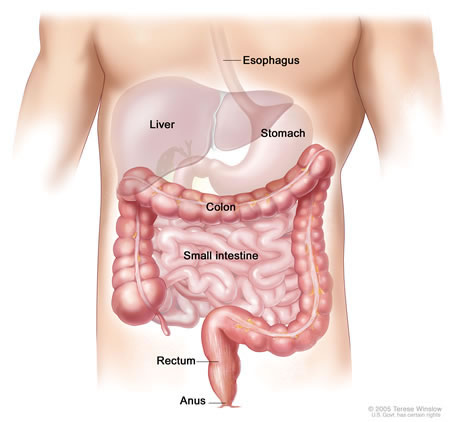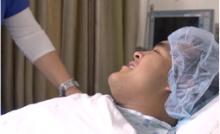By age 50, about half of all adults will have dealt with hemorrhoids at one point or another. While many people are familiar with hemorrhoids, they may not realize that there are two different types of hemorrhoids, each requiring unique treatments. External hemorrhoids are those that form under the skin surrounding the anus and often cause a great deal of pain, itching and discomfort.
Many cases of external hemorrhoids resolve on their own or with home remedies and creams. If your hemorrhoids aren’t improving, feel free to contact the colorectal experts at La Peer Health Systems’ Hemorrhoid Center of Excellence by calling (888) 742-2032.
External Hemorrhoid Causes and Symptoms
External hemorrhoids form when the veins swell, filling the soft tissue with blood and causing bumps to occur on the skin. Typical causes of external hemorrhoids are chronic constipation and straining during bowel movements. A lack of fiber in the diet and a failure to drink plenty of water can also contribute to the formation of external hemorrhoids.

Because external hemorrhoids are visible to the naked eye, they are typically easier to diagnose. People with external hemorrhoids may notice bright red blood on their toilet tissue. The area around the hemorrhoids may also feel itchy or raw. Some people with external hemorrhoids notice a bump near that anus that feels sensitive to the touch. If left untreated, a hemorrhoid can progress into a thrombosed external hemorrhoid, which occurs when a blood clot is formed. A thrombosed hemorrhoid can be extremely painful and should be treated immediately.
If you are experiencing persistent external hemorrhoids, it is best to consult with an expert colorectal surgeon or GI doctor like the ones at the Hemorrhoid Center of Excellence.
Request your consultation today.
Call us at 888.742.2032 to schedule an appointment or:
External Hemorrhoid Treatment
For external hemorrhoids that cause only mild discomfort, creams, suppositories, and medicated pads may offer effective relief. However, for larger and persistent bleeding hemorrhoids, more invasive surgical procedures may be required to resolve the condition. Our specialists perform a variety of procedures to treat external hemorrhoids, including hemorrhoidectomy, which is a surgery to remove the excess tissue and alleviate the pain associated with hemorrhoids. Making dietary and lifestyle changes can also help prevent external hemorrhoids from recurring.
Frequently Asked Questions
Q: How are external hemorrhoids diagnosed?
A: External hemorrhoids can usually be diagnosed through a simple visual and rectal examination.
Q: What are the symptoms of external hemorrhoids?
A: People with external hemorrhoids often experience a painful, itching sensation in the anus area. They might also notice bright red blood in the toilet bowl or on the toilet tissue.
Q: Are ointments and creams effective at treating hemorrhoids?
A: Over-the-counter creams can, in some cases, be effective in treating minor cases of external hemorrhoids. However, more severe hemorrhoids, and those occurring inside the rectum, may require medical treatment. If your hemorrhoids aren’t improving, consider seeing a specialist.
Q: What is a thrombosed external hemorrhoid?
A: Thrombosed external hemorrhoids occur when a blood clot develops in the hemorrhoid. This condition causes a great deal of swelling and discomfort and may require medical treatment.
Q: When should I see a doctor for my external hemorrhoids?
A: Seek medical care for those hemorrhoids that do not heal with OTC remedies, or if you experience any of the following symptoms:
- Stomach pain
- Lightheadedness
- Severe blood loss
Contact Us to Schedule an Appointment
If you think you may be suffering from external hemorrhoids, feel free to contact the board-certified colorectal doctors at the Hemorrhoid Center of Excellence for a consultation. We can be reached at (888) 742-2032 or by filling out the contact form on this website.
Next, read about Hemorrhoid Risk Factors










